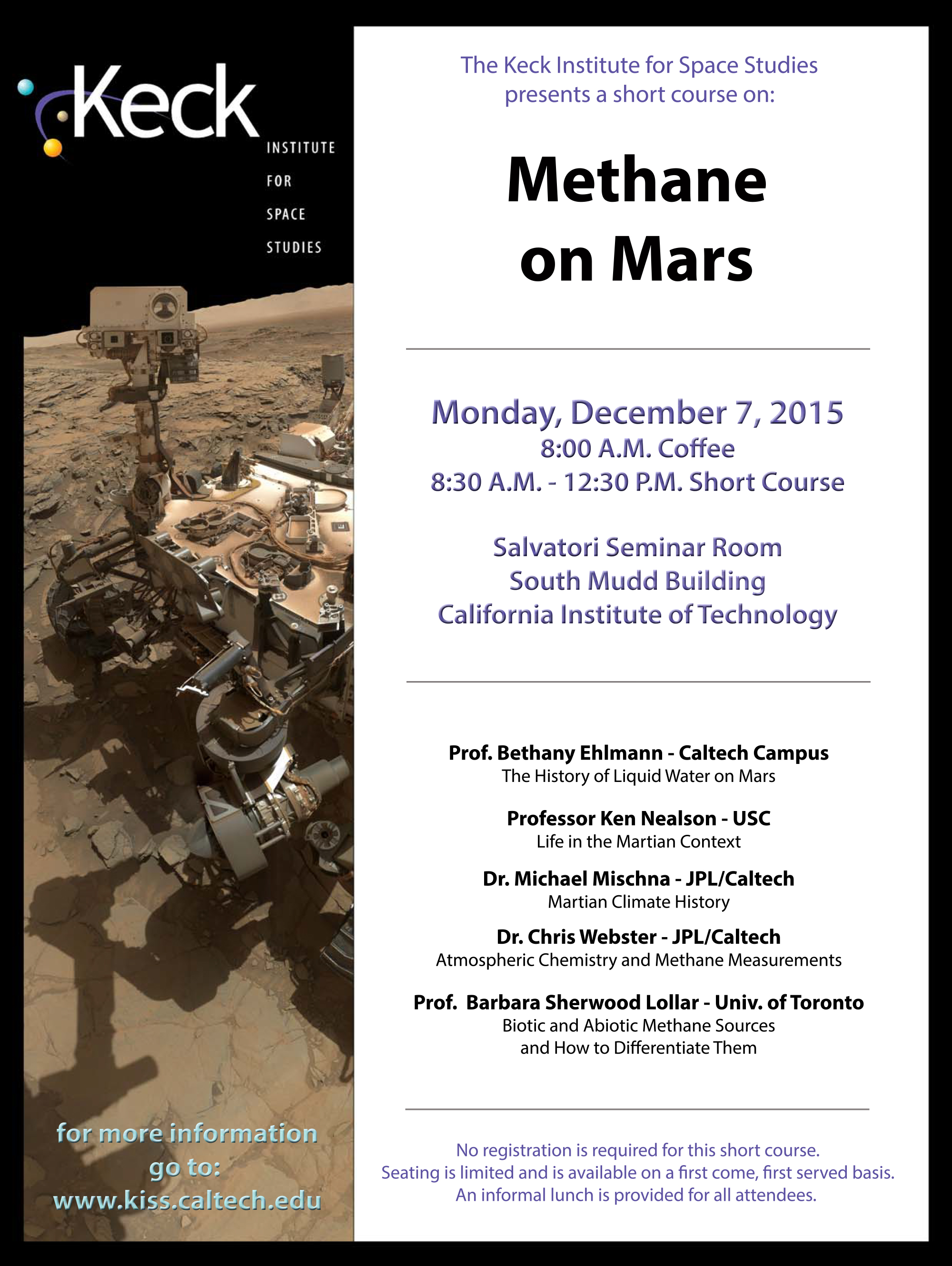Short Course: Methane on Mars
Monday, December 7, 2015
8:00 A.M. Coffee
8:30 A.M. - 12:30 P.M. Short Course
Salvatori Seminar Room, South Mudd Building - California Institute of Technology

Speakers:
- Prof. Bethany Ehlmann (Caltech Campus) - The History of Liquid Water on Mars
- Prof. Ken Nealson (USC) - Life in the Martian Context
- Dr. Michael Mischna (JPL/Caltech) - Martian Climate History
- Dr. Chris Webster (JPL/Caltech) - Atmospheric Chemistry and Methane Measurements
- Prof. Barbara Sherwood Lollar (Univ. of Toronto) - Biotic and Abiotic Methane Sources and How to Differentiate Them
Abstract:
The “Methane on Mars” study program investigates and explores the best route for solving the profound puzzles arising from the recent ground-truth detection of methane on Mars by the Tunable Laser Spectrometer (TLS) onboard Curiosity. This discovery reorients our understanding of the Martian environment and perhaps its potential for life. It necessitates a new era of research pursuing answers to the questions: What is generating methane, and how is it destroyed or sequestered on Mars? For instance, existing hypotheses of Martian methane sources include gas-water-rock chemistry and microbes (methanogens). The former implies the existence of environs offering liquid water and chemical sources of energy - i.e. habitability - while the latter implies the discovery of life on Mars. Solving these puzzles innately requires a concerted research effort across many disciplines and major technological advancements, including new measurement and exploration capabilities and methodologies.
Short Course Presentations |
|
|
B. Ehlmann, |
The History of Liquid Water on Mars |
| K. Nealson, USC |
Life in the Martian Context (758 KB .pdf) |
| M. Mischna, JPL/Caltech |
Atmospheric Dynamics: Martian Climate History (3.87 MB .pdf) |
| B. Sherwood Lollar, University of Toronto |
Differentiation of Biotic and Abiotic CH4:
Lessons from terrestrial analogs (8 MB .pdf) |
|
C. Webster, |
Atmospheric Chemistry and Methane Measurements |